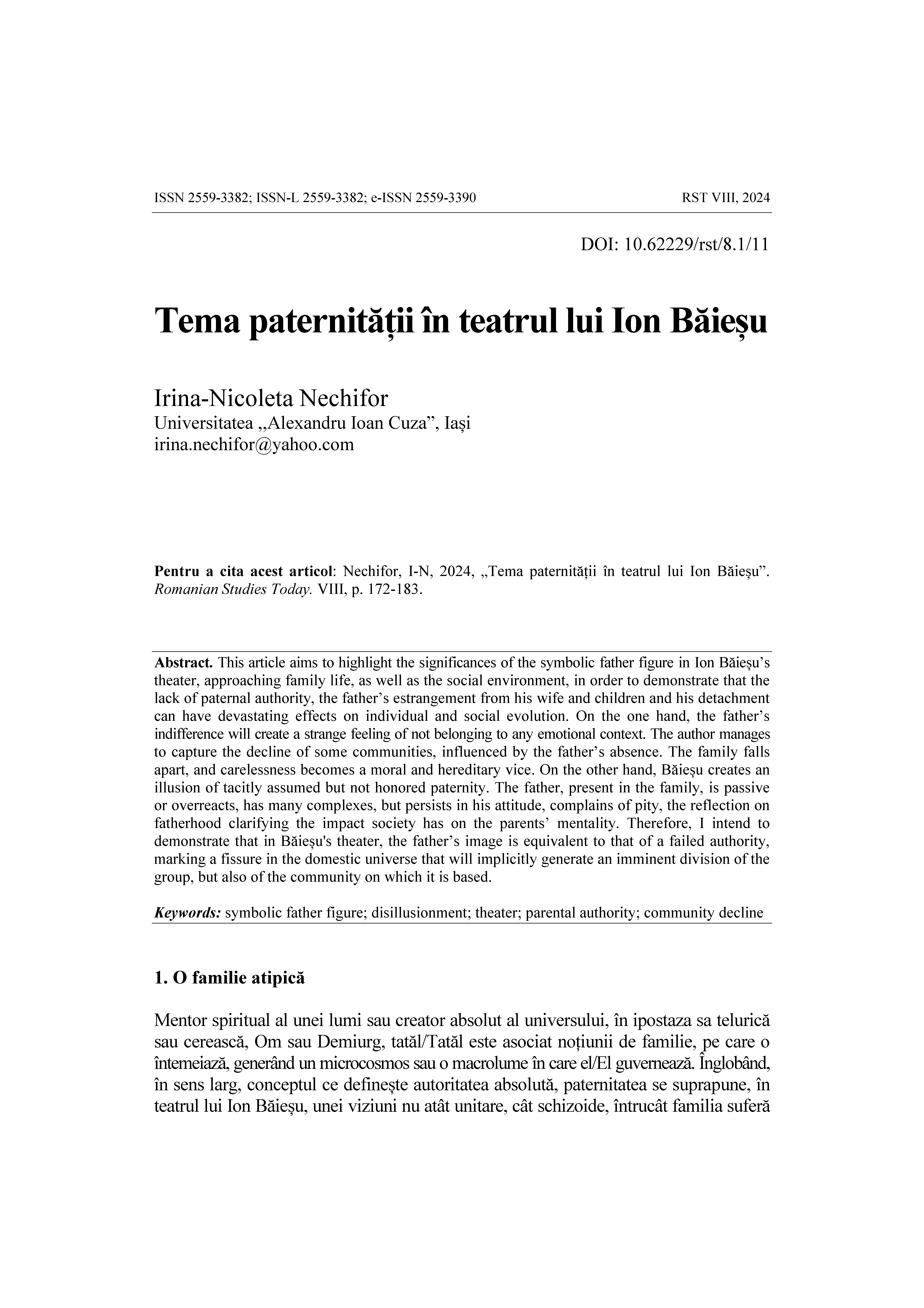Tema paternității în teatrul lui Ion Băieșu
DOI:
https://doi.org/10.62229/rst/8.1/11Cuvinte cheie:
symbolic father figure, disillusionment, theater, parental authority, community declineRezumat
This article aims to highlight the significances of the symbolic father figure in Ion Băieșu’s theater, approaching family life, as well as the social environment, in order to demonstrate that the lack of paternal authority, the father’s estrangement from his wife and children and his detachment can have devastating effects on individual and social evolution. On the one hand, the father’s
indifference will create a strange feeling of not belonging to any emotional context. The author manages to capture the decline of some communities, influenced by the father’s absence. The family falls apart, and carelessness becomes a moral and hereditary vice. On the other hand, Băieșu creates an illusion of tacitly assumed but not honored paternity. The father, present in the family, is passive or overreacts, has many complexes, but persists in his attitude, complains of pity, the reflection on fatherhood clarifying the impact society has on the parents’ mentality. Therefore, I intend to demonstrate that in Băieșu's theater, the father’s image is equivalent to that of a failed authority, marking a fissure in the domestic universe that will implicitly generate an imminent division of the group, but also of the community on which it is based.




